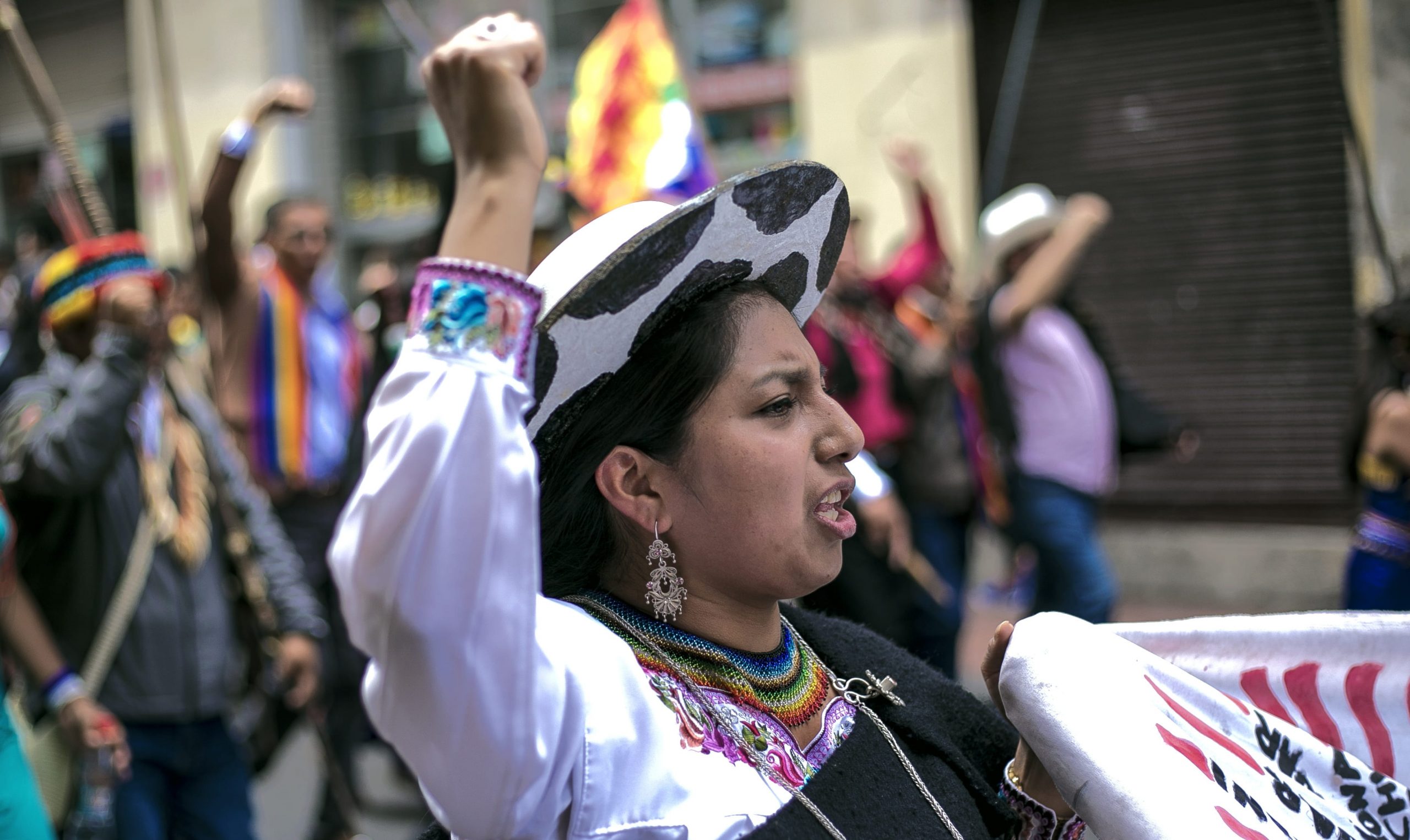Indigenous people have been at the forefront of climate movements for centuries, yet their voices still often remain unheard in major climate negotiations.
Indigenous peoples from all over the world gathered at the COP26 People’s Summit on Tuesday 9th to express their concerns regarding the progress (or lack of) at the traditional negotiations.
Reaching capacity at Adelaide’s Place Baptist Church in Glasgow, speakers from Indigenous groups ranging from Tibet to Australia to Bolivia took their opportunity to share many points of frustration, limitation but also of hope.
After an initial introduction and recap of the previous week of negotiations, Indigenous voices were given a platform to speak.
Each speaker was introduced by Seb Ordoñez-Muñoz, who welcomed “all of the Indigenous communities who have travelled from across the world to be able to hold space, bring their demands, bring their solutions and bring their power.”
The first speaker was Magin Herrera, a Bolivian Environmental Advisor who spoke in Spanish as translation was provided for non-Spanish participants.
She spoke of change, not only from the grassroots but from the “political constitution of the state”, the conservation of mother-earth and the requirement of knowledge and education for progress.
Her final comment was “no more capitalism, no more extractivism, no more pollution.”
Tibetan activist, Pema, of Students for a Free Tibet, then spoke:
“Tibetan people have cared for the Tibetan Plateau, the mountains, the rivers and the glaciers and treated them as sacred parts of our culture and our society… over 20% of the world’s population rely on this water that my people have protected for 8,000 years.”
She also named the Tibetan Plateau as “warming at a rate of 2-4 times faster than the global average”.
She continued to speak of the lack of representation at the traditional summit:
“When I went to COP26 what I noticed was there was so much discussion and representation for the Arctic and the Antarctic but there wasn’t a single voice for a Tibetan nomad.”
Indigenous American environmental, climate and indigenous rights activist as well as executive director of the Indigenous Environmental Network, Tom B.K. Goldtooth, then spoke.
He remained largely critical of COP, referring to it as the “conference of the polluters.”
He then spoke of the American Federal Government’s treatment of Indigenous peoples saying:
“Indigenous communities have been disproportionately targeted by the state … in America the criminal justice system has managed to create a pipeline of incarceration from schools to prisons.”
He also spoke of the “sacredness of mother-earth” naming the “female creative principle of our grandmother earth” and the disregard for this:
“We cannot separate the rights of nature, the rights of mother-earth from the rights of indigenous peoples.”
Finally, he spoke of the capitalist nature of climate politics, saying:
“If you bring in nature into a market system and treat it as a commodity, they have to determine whose property-right it is … who’s going to own that nature? It’s the corporations.”
“We have to stand together to fight climate capitalism.”
Another speaker was Ray Minniecon from both the Gubbi Gubbi and Goreng Goreng tribes from central and south-eastern Queensland, Australia.
He told the audience, “this is my first COP, and I’m trying to cope with the incredible hypocrisy that I’ve seen here, the deceitfulness, the betrayal, not just only of indigenous peoples but of all humanity.”
He spoke heavily of Australian colonialism, exclaiming “who gave them the permission to invade my country!”
He concluded his speech by saying: “we are demanding a seat at the table.”
More speakers came from Central and South America, one being Marina Flores from Mexico representing, Network for Indigenous Futures.
She again heavily emphasised the “hypocrisy of COP26” saying “if [alternative solutions] are linked to the capitalist system, they are no alternative.”
She ended her speech with a call in Spanish that roughly translated to: “tremble extractivists, Latin America and all our territories will be defended.”
A call and response exercise was also done with the crowd, led by Emilio from the Indigenous Guard of people in Ecuador, first, “are you tired?” “NO!” then a Spanish chant of “fuerza, fuerza!” repeated by the crowd as well as “guardia, guardia!”, translating to “force, force! Guard, guard!”
He continued saying “por Centroamérica” to which the crowd shouted “fuerza, fuerza!”, listing more places and pointing at different sections of the crowd to chant.
This comes from ‘Himno de la Guardia Indígena’ a Latin American, Indigenous protest chant.
Seb Ordoñez-Muñoz then concluded the assembly with the same chant:
“Fuerza, fuerza! Guardia, guardia!” provoking crowds to repeat and raise their fists as a symbol of power and solidarity.
Image via Pxfuel

